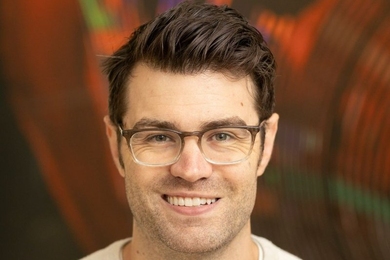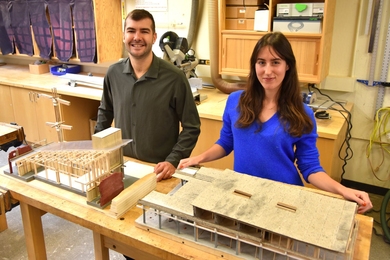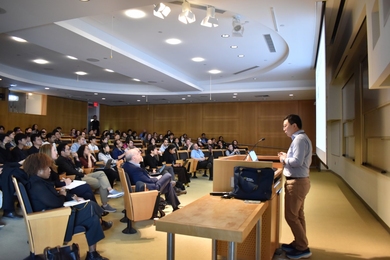The luxury handbag market is increasingly courting millennials. But they aren’t your typical shoppers.
“We discovered the new generation of consumers don’t really like to have a lot of logos,” says Wendy Wen ’09, the co-founder of Senreve, a luxury handbag company started last November. “They want something that’s high quality … but doesn’t scream flash.”
Unlike handbags that use a company logo as a key design element, Senreve’s line of designer bags limits branding. Their octopus logo does not even make an appearance on the handbag itself, and the Senreve company name is so subtle, it can be hard to locate.
The shift is intentional, and the result of hundreds of hours of consumer interviews that Wen and co-founder Coral Chung conducted before launching Senreve.
“Using the brand as a proxy for quality is futile,” says Wen, who earned her degree in economics and management. “Millennials now have information at their fingertips.”
That means Senreve’s customers can quickly learn about the Florentine craft workers who make their handbags and Wen's impetus for starting the company: frustration. As a fashion enthusiast working in finance, she would save her earnings to purchase high-end bags only to end up exasperated by their lack of compartments, their heavy weight, and their clunky straps.
Wen met Chung in business school and says the pair joined forces to capitalize on an “opportunity to create a new generation of luxury that defined the millennial that was not only beautiful but also functional.” Their company is solely online.
“I don’t have a store shelf to fill,” Wen says. “We can stock a few units of cool new colors like lilac, blush, or dandelion yellow, and if they sell out or do really well, we will put in a re-order.”
The tactic allows Senreve to sell many more colors than the three or four typically offered by brick-and-mortar competitors.
Being an online shop also affords Senreve an immediate window into customer buying patterns, which Wen insists improves service.
“You get so much more real-time data around what colors they’re clicking on, what questions they’re asking, and you can respond a lot faster,” she says.
Wen also employs several MIT millennials to inform Senreve’s business. Currently, junior Kelly Barton, sophomore Stephanie Li, and junior Fiona Zhang serve as remote interns doing tasks from social media content generation to e-commerce negotiations and marketing research. “We start giving them more and more rope as we see them prove themselves,” Wen says.
Each intern meets regularly with the founders to report on project progress and gain valuable advice. “Starting a company is so much easier than going to MIT,” Wen tells them. She also encourages her team to seek career advice from the alumni community.
“You almost have a special calling card when you are a student,” she says. “Alums are always willing to talk to students. Don’t be shy, reach out.”
The MIT Alumni Association now has an online hub for Institute alumni and students to give and seek career advice. Learn more about the MIT Alumni Advisors Hub.








